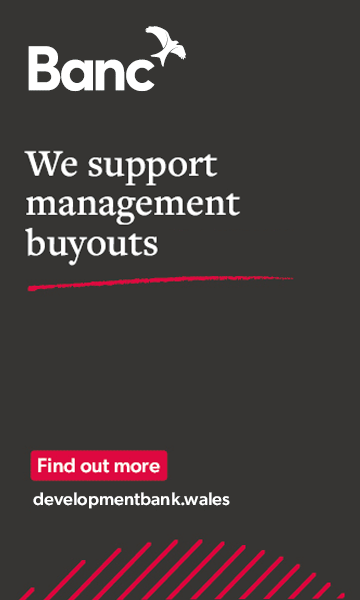J.P. Morgan Private Bank has released the results of its third-annual Top 200 Women-Powered Businesses report, which shows that since 2013 there has been a consistent upward trend in both the volume and total value of exits of businesses founded, led or managed by women in the UK.
Showcasing the fastest-growing UK businesses powered by women, the report found that since 2013 the number of such companies that have made successful exits has risen dramatically—from just five exits in 2013 to 171 in 2022. Between 2021 and 2022, the number of exits for women-powered businesses bucked the broader trend for the high-growth population, rising from 147 to 171 (+16.3%). Over the same period, exits by the broader high-growth company population decreased from 1,044 to 885 (-15.2%). The growth in the number of exits by women-powered businesses is a testament to their resilience in challenging times.
Despite the rise in exit numbers for women-powered businesses, 2022 saw a decrease in the total value of these exits to £1.58b. This was a drop from the impressive combined exit value of £2.96b in 2021.
“This year’s report found that the number of exits for women-owned, led or managed businesses continued to trend upwards over the year, which was not the case for broader high-growth population. Women-powered companies are still underrepresented in the cohort of exited businesses and not achieving the same growth in exit values,” said Charlotte Bobroff, Co-head of UK Women & Wealth at J.P. Morgan Private Bank.
“This is underscored by the fact that a mere 10.9% of all exits by high-growth firms over the past decade were by women-powered businesses, underlining ongoing gender parity challenges women face in harnessing entrepreneurship as a means of wealth generation.”

Trends in private investment
Private investment into women-powered businesses has grown rapidly over the past decade, rising from £630m in 2013 to £5.75b in 2022. Following the drop in investment into these companies in 2020 due to the COVID-19 pandemic, private investment levels peaked in 2021 as these companies secured £6.76b in equity investment via 2,293 deals.
“Amid the recent challenging macroeconomic conditions, the value of equity investment secured by businesses founded or led by women decreased by 14.9% from 2021 to 2022 compared to a decrease of 9% for the wider high-growth ecosystem. While this may potentially be due to the less favourable market conditions, prospective investors were deterred more so than the broader high-growth ecosystem.
But the environment for female entrepreneurs is improving; looking back 10 years ago, women-powered businesses received just 14.8% of all private investment and in 2022 women-powered businesses are achieving 23% of all private investment into high-growth businesses in the UK” Bobroff added.
Entrepreneurship is still thriving
Since the launch of the first edition of this report in 2021, the high-growth ecosystem has grown from 33,300 active UK businesses to 46,226. With this, the proportion of women-powered businesses has grown from 18.3% to 28.7% in 2023. The population has grown not just in absolute terms, but has grown faster than the male equivalents in order to increase their proportion.
Women-powered businesses struggle to achieve parity in tech sector
The top sectors by population for women-powered businesses tend to be digital sectors such as internet platform (1,036), food & drink processors (935), and software-as-a-service (824). When examining the sectors based on the proportion of companies in the high-growth population, the top three are nursing & care services (57.2%), consumer & retail (50.3%), and educational services (49.0%).
“We found that whilst internet platform is the sector which has the highest number of active women-powered businesses, they make up less than a third of the broader population of businesses,” Bobroff added. “We found similar trends in emerging sectors, with women-powered artificial intelligence companies representing a quarter of the sector despite it being the largest sector for emerging growth. Whilst it is reassuring that internet platforms and software-as-a-service collect the most amount of equity investment – as a proportion of the equity investment going to all high-growth companies – fashion, clothing, and ecommerce still dominates the proportion of equity, with women-powered businesses having a greater presence in these areas more so than in tech sectors.”
Region View
Aligning with broader trends within the high-growth ecosystem, London is home to most women-powered businesses. The South East, North West, and East of England also have a considerable number of women-powered businesses. The regional investment picture highlights some disparities in the amount of investment received. Despite accounting for 27.9% of London's 2022 equity deals, women-powered businesses secured only 13.4% of total investment in the city. This pattern was mirrored in Yorkshire and The Humber (24.8% of deals, 12.9% of the total value) and Scotland (26.6% and 15.9%), with women-powered firms gaining less value than deal proportion. In contrast, Northern Irish firms clinched 35.6% of equity investment in 2022, outpacing their 27.6% deal share. Achieving gender parity requires increasing the base population of women-powered businesses, their ability to receive investment, and the amount of investment they receive.
Commentary from the Top 20
“Recognition is always great, and I am in good company here, but my real hope is that the female entrepreneurs on this list are an inspiration for the next generation. We need a pipeline of innovative and potentially disruptive women-led start-ups and to create the environment to support them in their journey. High-growth enterprises are the organisations that will fuel our future.” Anne Boden, Founder & CEO Starling Bank
“Women entrepreneurs may face additional barriers to accessing funding and resources, such as bias and discrimination. Businesses can help to address these barriers by providing access to funding, training, and resources specifically designed for women entrepreneurs.” Karen Hewitt, Co-founder & Buying Director, Character.com
“Role models need to exist, and I do think the landscape is changing for the better. I think it’s important for women to see other women building businesses, have them as role models, and believe they can accomplish the same things—or even better.” Darina Garland, Co-founder & Co-CEO, Ooni











